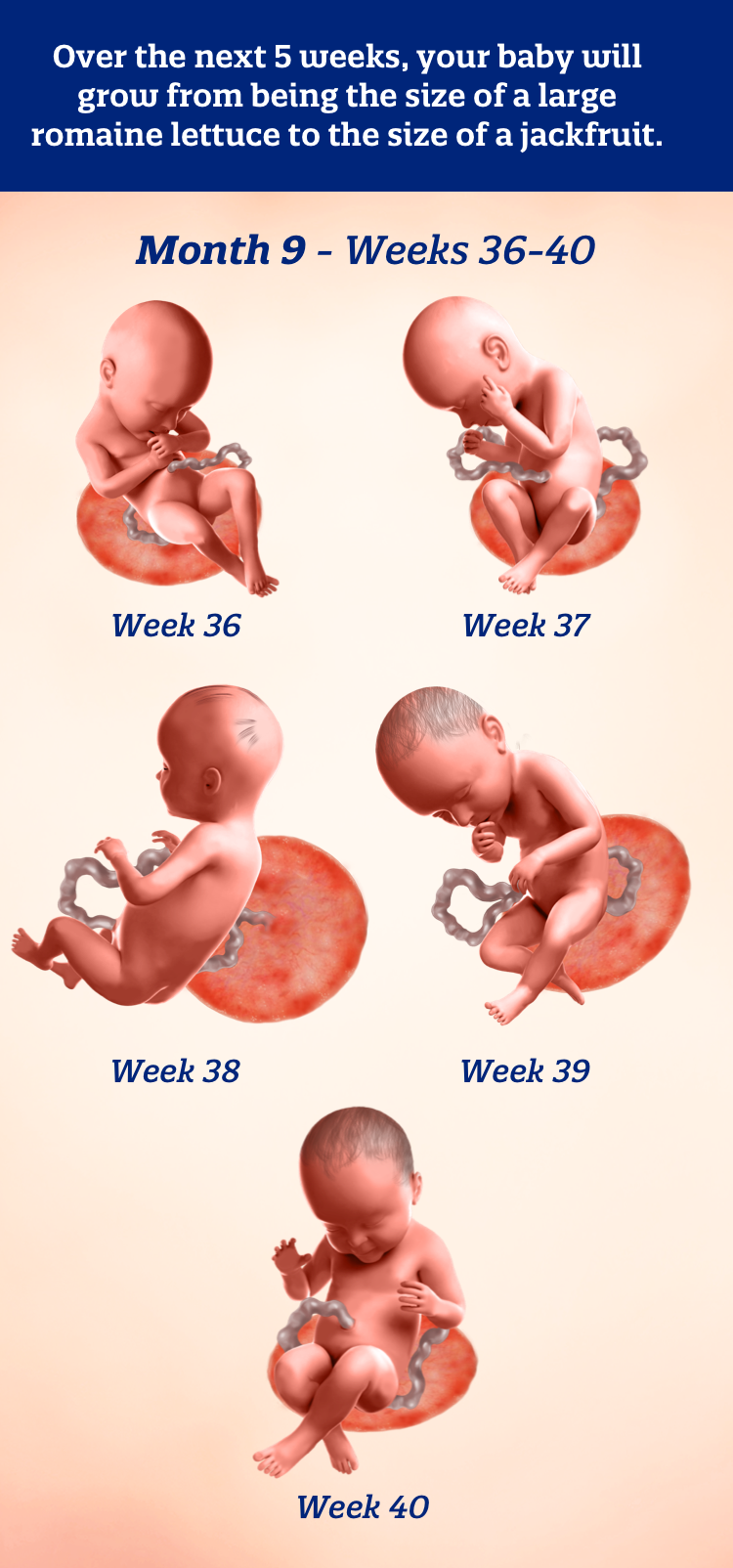
The Nine Months of Pregnancy: A Comprehensive Guide
Pregnancy is an extraordinary journey that involves significant physical, emotional, and hormonal changes for the expectant mother. Spanning over nine months, this transformative period can be both exhilarating and challenging. To navigate this journey with confidence, it is essential to understand the developmental milestones and changes that occur throughout each trimester.
First Trimester (Weeks 1-12)
- Weeks 1-4: The pregnancy begins with the fertilization of an egg by a sperm, forming a zygote. The zygote then travels through the fallopian tube and implants in the lining of the uterus, a process known as implantation.
- Weeks 5-8: The embryo develops rapidly, forming the major organs and systems. The heart begins to beat, and the limbs and facial features start to take shape.
- Weeks 9-12: The embryo is now referred to as a fetus. The external genitalia become visible, and the fetus begins to move and make small gestures. The mother may experience morning sickness, fatigue, and breast tenderness.
Second Trimester (Weeks 13-28)
- Weeks 13-16: The fetus grows rapidly, and the mother’s belly begins to show. The fetus’s movements become more pronounced, and the mother may feel quickening, the first sensation of the baby moving.
- Weeks 17-20: The fetus’s hearing develops, and it can respond to sounds. The mother may experience increased energy levels and a decrease in morning sickness.
- Weeks 21-24: The fetus’s eyes open, and it begins to make facial expressions. The mother may experience Braxton Hicks contractions, which are practice contractions that prepare the uterus for labor.
- Weeks 25-28: The fetus gains weight rapidly and develops a layer of fat beneath its skin. The mother may experience back pain, leg cramps, and swelling.
Third Trimester (Weeks 29-40)
- Weeks 29-32: The fetus’s lungs continue to develop, and it begins to practice breathing. The mother may experience difficulty sleeping, heartburn, and shortness of breath.
- Weeks 33-36: The fetus’s head turns downward in preparation for birth. The mother may experience increased vaginal discharge and pelvic pressure.
- Weeks 37-40: The fetus is fully developed and ready to be born. The mother may experience false labor pains, which are irregular and do not progress. The due date is typically around week 40, but it can vary by up to two weeks.
Physical Changes During Pregnancy
- Increased blood volume: The body produces more blood to support the growing fetus and placenta.
- Weight gain: The average weight gain during pregnancy is 25-35 pounds, which includes the weight of the baby, placenta, amniotic fluid, and increased maternal tissue.
- Uterine growth: The uterus expands significantly to accommodate the growing fetus.
- Breast changes: The breasts enlarge and become tender in preparation for breastfeeding.
- Skin changes: The skin may become darker and develop stretch marks.
- Hair growth: Hair growth may increase on the head, arms, and legs.
Emotional Changes During Pregnancy
- Mood swings: Pregnancy hormones can cause emotional ups and downs.
- Anxiety: Concerns about the baby, labor, and parenting can lead to anxiety.
- Depression: Some women experience depression during pregnancy.
- Increased sensitivity: The mother may become more sensitive to smells, sounds, and emotions.
- Bonding with the baby: As the pregnancy progresses, the mother develops a strong bond with her unborn child.
Prenatal Care
Regular prenatal care is essential for monitoring the health of both the mother and the baby. Prenatal appointments typically include:
- Physical exams
- Blood tests
- Ultrasound scans
- Urine tests
- Education on pregnancy, labor, and parenting
Lifestyle Modifications
To ensure a healthy pregnancy, it is important to make certain lifestyle modifications, including:
- Diet: Eating a balanced diet rich in fruits, vegetables, and whole grains is crucial.
- Exercise: Regular exercise is recommended, but avoid strenuous activities.
- Sleep: Aim for 7-9 hours of sleep each night.
- Smoking: Quit smoking as it can harm the baby.
- Alcohol: Avoid alcohol consumption during pregnancy.
- Medications: Only take medications prescribed by your doctor.
Signs of Pregnancy Complications
It is important to be aware of the signs of pregnancy complications, such as:
- Vaginal bleeding
- Severe abdominal pain
- High blood pressure
- Excessive swelling
- Persistent vomiting
- Decreased fetal movement
If you experience any of these symptoms, seek medical attention immediately.
Preparing for Labor and Delivery
As the due date approaches, it is important to prepare for labor and delivery. This includes:
- Creating a birth plan
- Packing a hospital bag
- Arranging childcare for other children
- Learning about labor and delivery techniques
Conclusion
Pregnancy is a transformative journey that involves significant physical, emotional, and hormonal changes. By understanding the developmental milestones and changes that occur throughout each trimester, expectant mothers can navigate this journey with confidence and prepare for the arrival of their precious baby. Regular prenatal care, lifestyle modifications, and awareness of pregnancy complications are essential for ensuring a healthy pregnancy and a safe delivery.